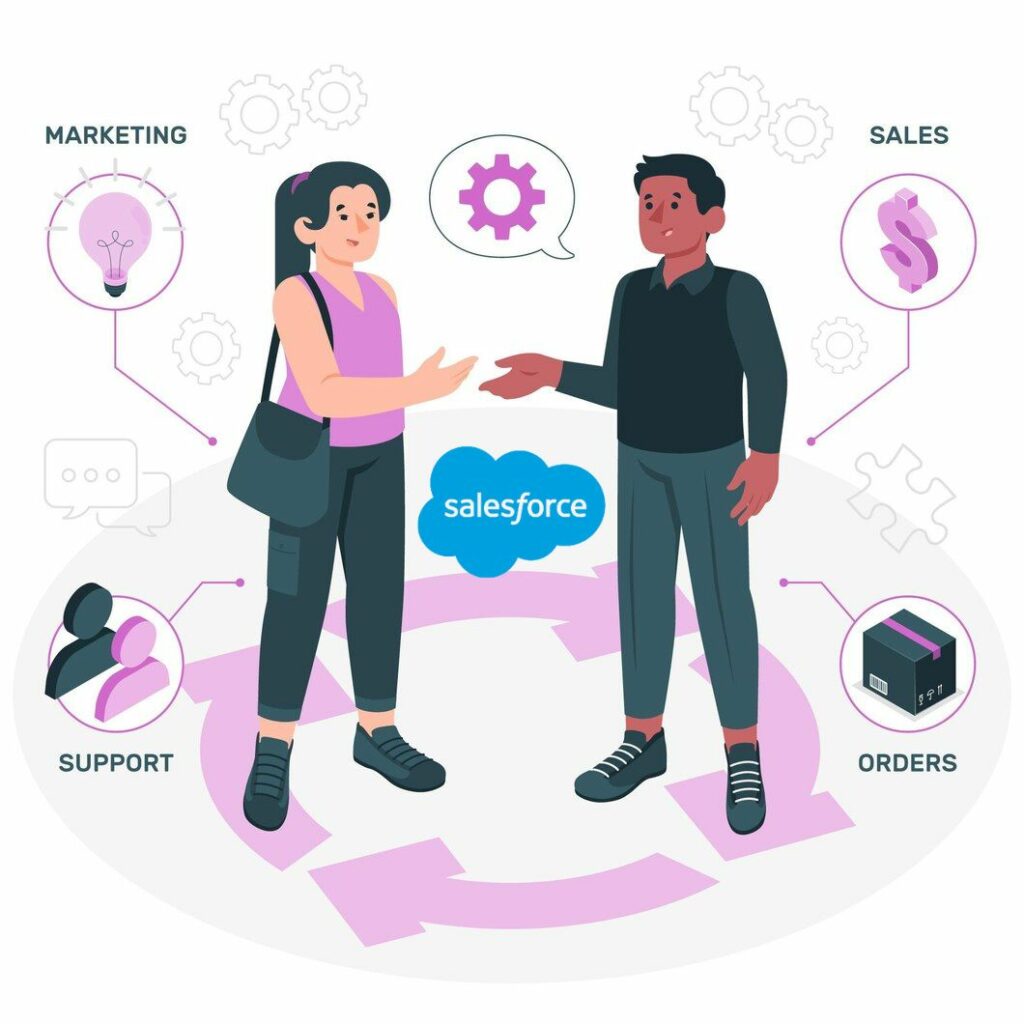- Home
- About
- NetSuiteNetSuite
ERPNetSuite
ERPNetSuite
CRMNetSuite
CRMNetSuite
PSANetSuite
PSANetSuite
EcommerceNetSuite
EcommerceNetSuite
OneworldNetSuite
OneworldNetSuite
SuiteSuccessNetSuite
Success - Industry
- ServicesNetSuite
CustomizationNetSuite
CustomizationNetSuite
ImplementationNetSuite
ImplementationNetSuite
IntegrationNetSuite
IntegrationNetSuite
TrainingNetSuite
TrainingNetSuite
MIS ReportingNetSuite
MIS Reporting - Integration Tool
- Blog
- Career
- Contact
NetSuite ERP vs SAP Business One: A Detailed Comparison on 10 Aspects
NetSuite ERP vs SAP Business One: A Detailed Comparison
Two of the most common ERP solutions that companies shortlist include NetSuite ERP and SAP Business One. Many more ERP software exists, but these two are all-in-one enterprise software capable of managing all business aspects. This article compares NetSuite ERP vs SAP Business One.
Investing in an ERP System
According to HubSpot’s survey, 97% of respondents cited improved business processes as the key result of the new ERP system. While 86% cited better visibility and reports as key benefits of ERP, 68% benefited from better competitiveness and growth.
All these survey statistics show that ERP software brings a significant transformation for any business. It is an investment that brings high returns. So, it is imminent for organizations to invest in an effective ERP system that produces a high ROI.
Let’s compare NetSuite ERP vs SAP Business one.

Licensing structure of NetSuite ERP vs SAP Business One
NetSuite ERP is provided on a subscription basis because it is a SaaS solution. In this case, hosting fees and software management comprise the annual fees. Users have to pay monthly subscription fees.
You can access the software through three possible editions – mid-market, standard, and premium. You can buy the license directly from NetSuite or any NetSuite partner or solution provider, such as Cloudiotech.
Vendors sell SAP Business One as an upfront perpetual license. For owning such a perpetual license, you will have to pay an annual maintenance fee. You can buy its license through SAP’s authorized resellers.
Mode of deployment Between NetSuite ERP vs SAP Business One
NetSuite is a cloud solution, while SAP Business One is an on-premise software. It’s cloud version is also available.
In the case of NetSuite Project Management software, multiple users can access it through a web browser. You are just a tenant of the software that is hosted in a shared data center in some other location by a vendor. You pay a monthly rental fee for the platform plus user fees. NetSuite manages system back-ups, upgrades, and data security measures, relieving you from the stress.
In the case of SAP Business One, companies have to host the system on their own servers. Thus, you have to bear the hardware and infrastructure costs and maintenance fees. Another alternative is hosting your ERP system by the third party in a private data center, where users access the ERP through the internet. In this case, you do not have to pay for the infrastructure costs, and you also retain control over your data.
Customization Difference between NetSuite vs SAP Business One
Customization is the best feature of Cloud ERP systems because you can get industry-specific functionalities. You can customize the systems as per your business requirements and workflows. Both NetSuite and SAP Business One can be customized as per your user needs.
There is a myriad of modules in NetSuite that you can add for maximum use of the system. You can also add fields, tables, records, and elements. Since NetSuite software has the capability to edit and customize these elements, you don’t need to change the code.
Even in SAP Business One, multiple industry-specific applications are available for customization. Also, on upgradation, you can add many other elements, fields, and records. But, since code modification is possible in this system, users’ ability to upgrade and customize is restricted.
Integration Of SAP vs NetSuite
Integrating other applications and systems with NetSuite is a smoother and easier process. An API and Integration Management System exists in NetSuite making integration and compatibility with other applications more manageable. This feature ensures your solution’s increased scalability, which helps to fulfill your business’s specific needs.
SAP Business One has no standards-based open architecture to integrate with other third-party applications. To adjust the system’s native functionality, you need knowledge and functionality of several APIs. Integration with other applications becomes costlier and challenging due to the requirement of additional technical support.
Analytics and Reporting Of NetSuite ERP vs SAP Business One
One of the key benefits of ERP systems is the additional analytics and reporting it allows. These are useful to any business for understanding how their business is performing and making decisions. Both the solutions are rich in this functionality.
In the case of NetSuite, you can create real-time reports and generate insights through the reporting tools of SuiteAnalytics. These tools are user-friendly and help you comprehend your business processes, workflows, and operations.
SAP Business One has the SAP Analytics tool to provide users with insights, analytics, and real-time reports. You can access a few features of this tool only by taking a separate license, which, again, adds to the cost. Thus, you can generate more insights but at an additional cost.
Functionalities of NetSuite ERP vs SAP Business One
NetSuite offers users the flexibility to choose the modules as per their business requirements. If you do not want a module in your ERP system, just drop it. Even for industry-specific applications, you can integrate third-party add-ons in NetSuite.
This type of flexibility is not available in the case of SAP Business One. Except for the CRM application, you do not have the choice to drop any module. It has industry-specific solutions to satisfy your industry needs
Web accessibility:
Both are accessible through web browsers, but with a difference.
Since NetSuite is a cloud solution, you can access it from any remote location with a web browser and login credentials. You can also maintain different portals with restricted access for suppliers, customers, and employees.
To access SAP Business One, you need a web browser with Java. Also, you are required to manage a lot of work to access the solution.
Mobile access:
NetSuite’s web-based accessibility makes it more flexible to be used on all operating systems. It has a mobile app for both iOS and Android, helping you with the operations in real-time.
As an on-premise solution, you cannot access SAP Business One through mobile devices. But as a cloud solution or the hybrid version, you can get mobile access through third-party solutions.
NetSuite ERP Cost vs SAP Business One Cost
Based on the deployment and licensing structure, the cost of both the ERP software differs. For SAP Business One, annual licensing and maintenance fees include upgradation, technical support, and bug fixing charges. It means the initial cost outlay is high, and you pay maintenance fees for the time you run the system.
NetSuite’s cost depends on different factors, including:
- Modules you select for customization
- Company size
- Number of users
- Duration of subscription
Thus, you don’t have a capital expense but operational expenses to pay to the vendor. Your cost increase or decrease when your user count changes
NetSuite ERP system updates and upgrades vs SAP Business One system updates and upgrades
System updates and upgrades are important to allow users to work with the latest version.
Automatic version updates occur in NetSuite because of its cloud functionality. Thus, you are never late in using the latest version. These system upgrades do not disturb the custom code and configurations, thereby less impacting the system’s customizations. You must work with your NetSuite partner to plan updation and testing integrations so that the upgrades do not pose any risk to your customizations and integrations.
In the case of SAP Business One, users can upgrade the system whenever they want. Thus, these upgrades do not disturb your business, as you control the upgrade timing. But you must manage it carefully to avoid disruption to custom code and workflows. Also, if you delay your system updates and keep using the older version, you keep your processes away from the new functionality, which is added in version upgrades.
Between NetSuite and SAP Business One Which is the better solution?
While there are many differences between NetSuite and SAP Business One, your choice depends on your requirements. You must select a solution that generates the expected benefits based on your business requirements and size. If you get it wrong in the software selection, you will suffer huge losses in terms of money and time.
SAB Business One is best when you want a streamlined solution to your long-term business requirements. But, if you are looking for a solution that adapts to the evolving business scenario, NetSuite is the best. Also, considering the cloud-based solutions working in the current times and the need for integration with existing third-party applications, NetSuite would be the best bet.
It’s better to consult a NetSuite ERP services provider to make a strategic decision for your company. Cloudiotech is a leading NetSuite Implementation partner in the US. We can help you understand your business requirements, suggest customizations, and implement the NetSuite solution for you.
Besides implementation, we also provide integration, customization, training, and support services. Our clients of different sizes operating in several industries have benefited from our NetSuite services. We give you full support for the NetSuite implementation journey, starting from preparing business requirements documents to post-implementation support.
Connect with Cloudiotech for NetSuite solutions and services
To make your business more productive




